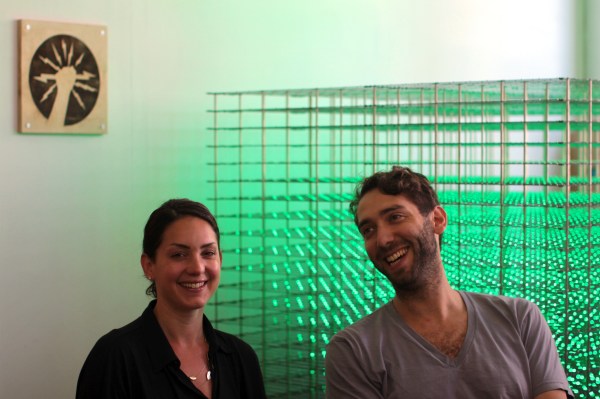After finding a fully functional laptop discarded in a rubbish skip near their home, Bethany Koby and Daniel Hirschmann realized this was the spark they were looking for to create a new kind of technology education startup. The wife and husband team created ‘Technology Will Save Us’ (TWSU) in 2012 to put together hardware and software ‘making’ in a way that hadn’t been done before. The design-led company today announces the closing of its $1.8M financing round led by SaatchInvest, with participation from European seed-stage VC fund Backed and an (as yet unnamed) “substantial retail investor”. The funds will be used to expand the product range and build on existing retail partnerships such as the UK retail giant John Lewis, Urban Outfitters, The Conran Shop and the MoMA Design Store in New York.
The investment round was led by early stage investor SaatchInvest, whose portfolio includes Citymapper and Evrythng. Venture firm Backed, which was recently founded by Andre de Haes of Andreessen Horowitz also participated. The company also has an influential group of advisors and mentors that include VC Tracy Dorée, entrepreneur/designer Matt Webb, Stuart Marks and Sherry Coutu CBE.
On the face of it, TWSU looks simply like a range of do-it-yourself gadget kits, activities and online resources. But the company’s iconic range of DIY kits are a unique take on an approach to education which, while thriving inside the silos of maker fares, hasn’t gone mainstream yet.
That’s about to change with the news that TWSU has designed the BBC micro:bit, a pocket-sized tech tool that will be given to 1 million 11-year-olds in February 2015. Plus, the partnership with John Lewis will put hardware and software hacking into the hands of mainstream audiences.
The startup has already been selling gadget kit priced from £15 making them accessible to the mass market, shifting over 50,000 kits to date.
In an interview Koby told me what has motivated TWSU’s investors: “There’s a shift happening in the educational needs of young people. They need new skills for the future, to create the jobs to of the future, but they are not getting access to digital tools. This has already happened in the US, so our UK investors clearly see this as a growing market. Lots of investors are parents too, so they have a personal interest.”
Are they in any danger of being cloned?
“Most of the new startups like us are building on open source software and hardware so the business model is different. Community hacking and customization doesn’t take away from our business and actually adds to it. We have invested in an ecosystem – it’s not just products. We are close to the Makerbot / Thingiverse model so these things only strengthen each other. So there is something similar to our DNA.”
“We are not appealing to makers in their sheds – we are appealing to moms and families in John Lewis who don’t even know what a Raspberry Pi is.”
